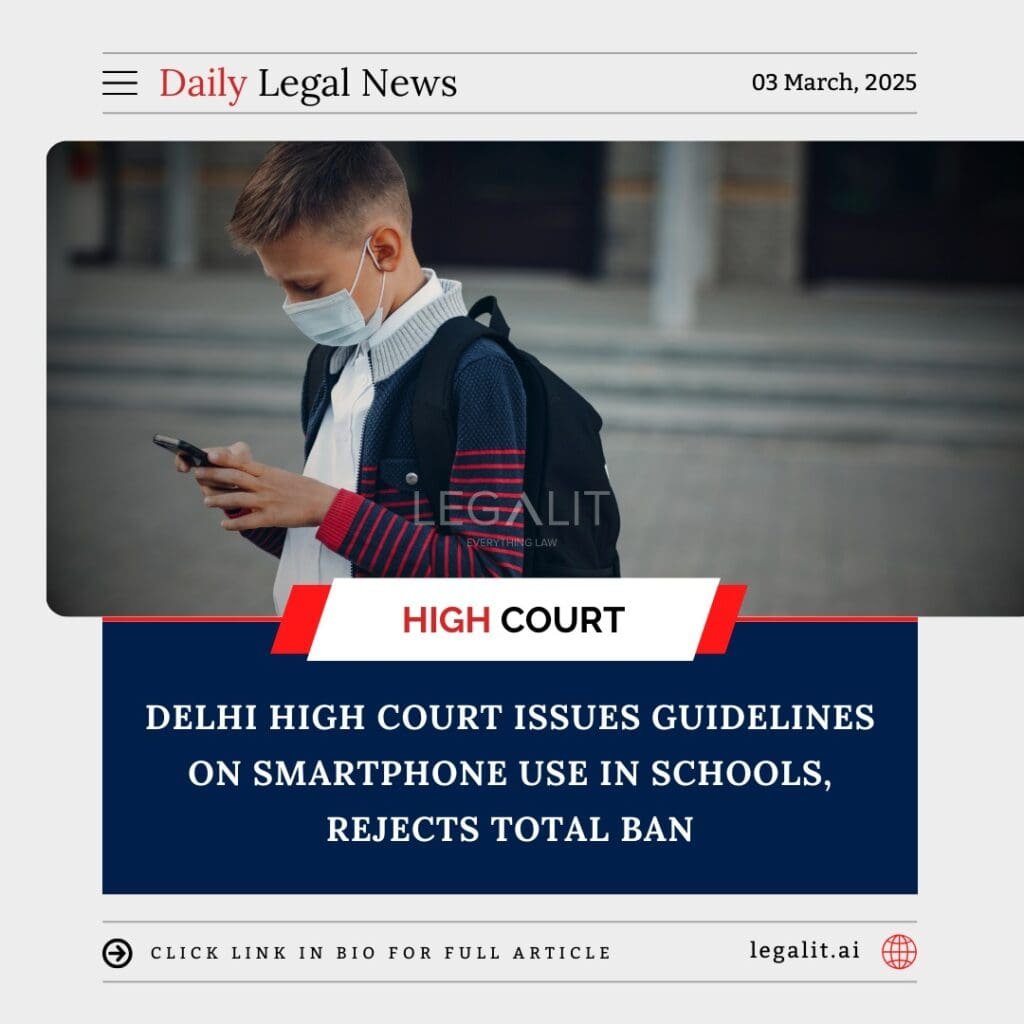
Background
The Delhi High Court has framed guidelines to regulate the use of smartphones in schools while rejecting a complete ban. The court was hearing a petition seeking restrictions on mobile phone usage by students, citing concerns over distractions, cyber threats, and mental health issues.
Court’s Rationale
- Balanced Approach Over Blanket Ban
- The court acknowledged the negative effects of excessive smartphone use, including academic distractions and exposure to harmful content.
- However, it emphasized that smartphones are also essential for learning, communication, and emergency situations.
- Guidelines for Schools
- Schools must create structured policies to regulate smartphone use rather than prohibit them entirely.
- Controlled access to mobile phones should be allowed for educational purposes under teacher supervision.
- Parents and teachers should be involved in monitoring students’ digital activities.
- Focus on Digital Literacy
- Schools are encouraged to educate students on responsible smartphone usage.
- Cybersecurity awareness programs should be introduced to help students navigate online threats.
Existing Measures
- Information Technology Act, 2000: Regulates online safety and cybercrime concerns.
- National Education Policy (NEP) 2020: Promotes digital learning while emphasizing moderation in screen time.
- CBSE & State Board Guidelines: Some boards already advise limited smartphone use in classrooms.
Conclusion
The Delhi High Court’s guidelines aim to strike a balance between preventing misuse of smartphones and leveraging technology for education. Schools are expected to implement structured policies that ensure students use mobile phones responsibly without negatively impacting their learning environment.